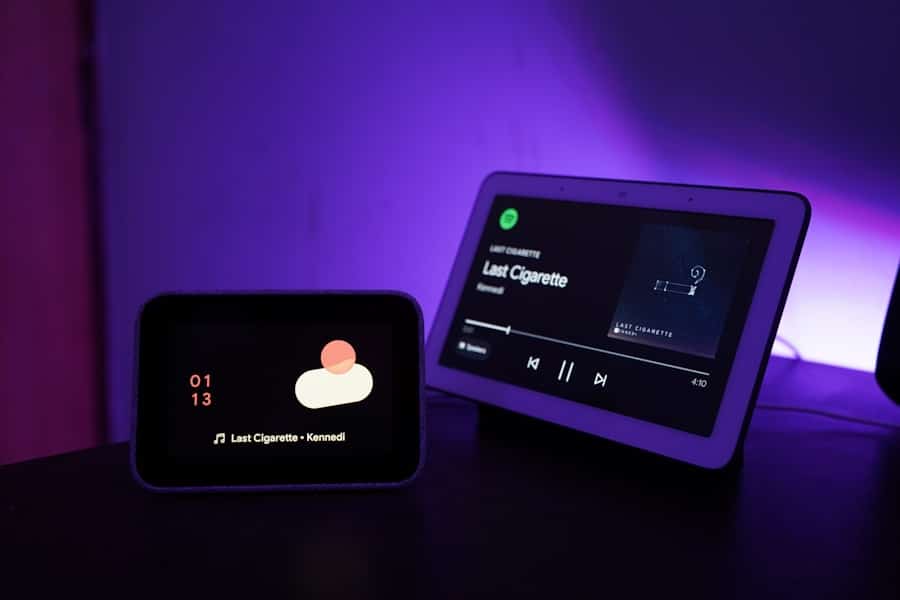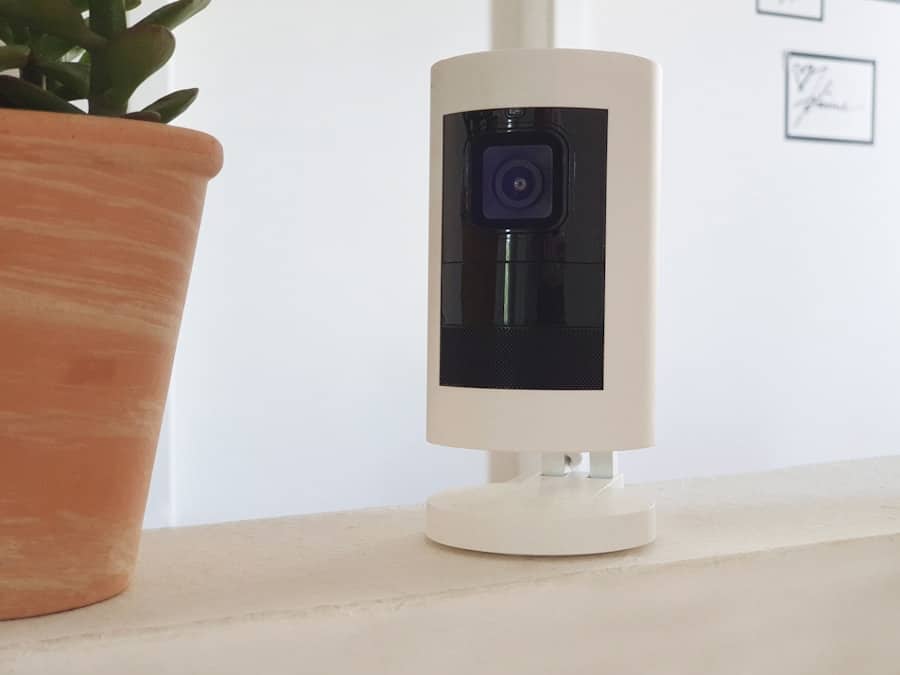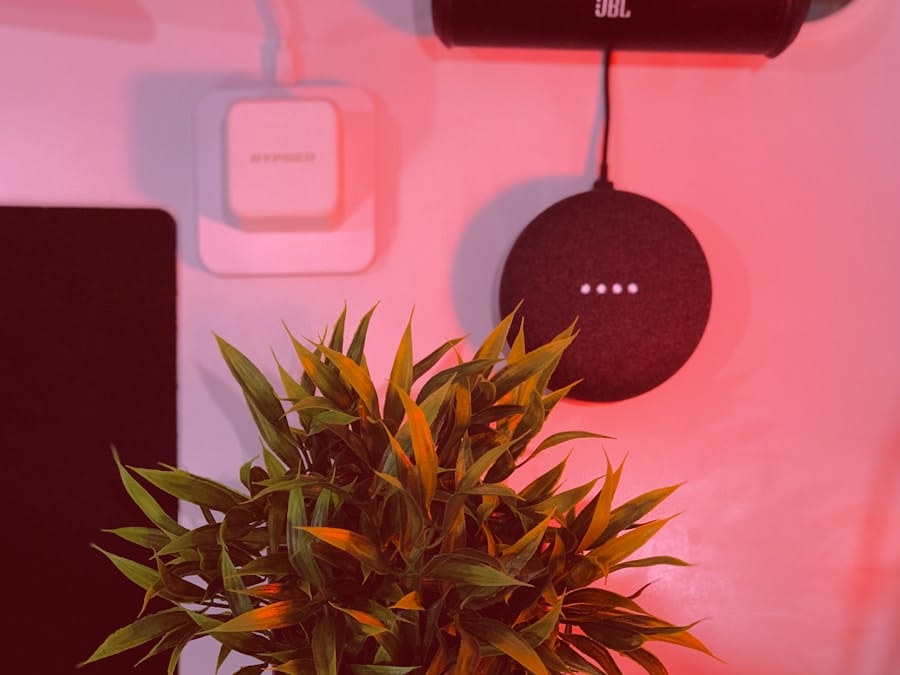In recent years, the concept of home ambiance has evolved significantly, driven by advancements in technology and a growing desire for personalized living experiences. The integration of artificial intelligence (AI) into home ambiance control systems has revolutionized how individuals interact with their living spaces. This transformation allows for a tailored environment that adapts to the preferences and habits of the inhabitants, enhancing comfort, productivity, and overall well-being.
AI-powered systems can analyze data from various sources, including user behavior, environmental conditions, and even mood indicators, to create a harmonious atmosphere that aligns with the occupants’ needs. The rise of smart home technology has paved the way for AI to play a pivotal role in managing home ambiance. From lighting and temperature to sound and scent, AI systems can seamlessly adjust these elements to create an ideal living environment.
This level of personalization not only enhances the aesthetic appeal of a home but also contributes to energy efficiency and sustainability. As consumers increasingly seek convenience and comfort, the demand for AI-powered personalized home ambiance control continues to grow, making it a significant area of focus for both technology developers and homeowners alike.
Key Takeaways
- AI-powered personalized home ambiance control uses artificial intelligence to create a customized and comfortable environment for individuals in their homes.
- Artificial intelligence plays a crucial role in analyzing data, learning user preferences, and adjusting home ambiance settings accordingly.
- The advantages of personalized home ambiance control include energy efficiency, convenience, and improved well-being for occupants.
- Challenges and concerns in AI-powered home ambiance control include privacy issues, security risks, and potential over-reliance on technology.
- Integration of AI with smart home devices allows for seamless control and automation of various aspects of home ambiance, such as lighting, temperature, and entertainment systems.
The Role of Artificial Intelligence in Home Ambiance Control
Artificial intelligence serves as the backbone of personalized home ambiance control systems, utilizing machine learning algorithms and data analytics to understand user preferences and behaviors. By collecting data from various sensors and devices within the home, AI can identify patterns in how occupants interact with their environment. For instance, an AI system might learn that a user prefers warmer lighting in the evening while favoring cooler tones during the day.
This information allows the system to automatically adjust lighting settings based on the time of day or even the specific activities taking place in different rooms. Moreover, AI can integrate with voice recognition technology, enabling users to control their home ambiance through simple voice commands. This hands-free approach not only enhances convenience but also allows for a more intuitive interaction with the home environment.
For example, a user might say, “Set the living room to movie mode,” prompting the AI system to dim the lights, lower the shades, and adjust the sound system accordingly. Such capabilities illustrate how AI can create a more immersive and responsive living experience, transforming ordinary spaces into personalized sanctuaries.
Advantages of Personalized Home Ambiance Control

The advantages of personalized home ambiance control are manifold, significantly impacting both daily life and long-term well-being. One of the most notable benefits is enhanced comfort. By tailoring environmental factors such as lighting, temperature, and sound to individual preferences, occupants can create spaces that promote relaxation or productivity as needed.
For instance, studies have shown that appropriate lighting can improve mood and cognitive function, making it essential for home offices or study areas to have adjustable settings that cater to specific tasks. Energy efficiency is another critical advantage of AI-powered ambiance control systems. By learning user habits and preferences, these systems can optimize energy consumption without sacrificing comfort.
For example, an AI system might automatically lower heating or cooling when it detects that no one is home or adjust lighting based on natural daylight availability. This not only reduces energy bills but also contributes to a more sustainable lifestyle by minimizing the carbon footprint associated with excessive energy use.
Challenges and Concerns in AI-Powered Home Ambiance Control
Despite the numerous benefits associated with AI-powered personalized home ambiance control, several challenges and concerns must be addressed. One significant issue is data privacy. As these systems rely on collecting and analyzing personal data to function effectively, there is an inherent risk of sensitive information being compromised or misused.
Homeowners may be apprehensive about how their data is stored, who has access to it, and how it might be utilized by third parties. Ensuring robust security measures and transparent data handling practices is crucial for building trust among users. Another challenge lies in the potential for over-reliance on technology.
While AI can enhance convenience and comfort, there is a risk that individuals may become too dependent on automated systems for managing their environments. This reliance could lead to a diminished ability to adapt to changes or make manual adjustments when necessary. Striking a balance between leveraging technology for convenience while maintaining personal agency in controlling one’s living space is essential for fostering a healthy relationship with smart home systems.
Integration of AI with Smart Home Devices
The integration of AI with smart home devices is a cornerstone of personalized home ambiance control. Smart devices such as thermostats, lighting systems, speakers, and even air purifiers can communicate with one another through a centralized hub or cloud-based platform. This interconnectedness allows for seamless coordination among devices, enabling them to work together harmoniously to create an optimal living environment.
Furthermore, advancements in interoperability standards have made it easier for different manufacturers’ devices to communicate effectively. Protocols such as Zigbee and Z-Wave facilitate this integration by allowing devices from various brands to work together within a single ecosystem.
This flexibility empowers homeowners to customize their ambiance control systems according to their preferences without being locked into a specific brand or product line. As more devices become compatible with AI-driven platforms, the potential for creating highly personalized environments will continue to expand.
Future Trends and Innovations in Personalized Home Ambiance Control

Looking ahead, several trends and innovations are poised to shape the future of personalized home ambiance control powered by AI. One emerging trend is the incorporation of advanced biometric sensors that can assess users’ physical and emotional states in real-time. For example, wearables or smart mirrors equipped with facial recognition technology could analyze expressions or heart rates to determine mood levels.
Based on this data, the AI system could adjust lighting colors or play specific music genres that align with the user’s emotional state, creating an environment that actively responds to their needs. Another promising innovation is the development of context-aware systems that consider not only individual preferences but also external factors such as weather conditions or time of day. For instance, if it starts raining outside, an AI system could automatically close windows while adjusting indoor lighting to compensate for reduced natural light levels.
Such context-aware capabilities would enhance the adaptability of home ambiance control systems, ensuring that they remain responsive to both internal and external changes.
Ethical Considerations in AI-Powered Home Ambiance Control
As with any technology that relies on data collection and analysis, ethical considerations play a crucial role in the development and deployment of AI-powered home ambiance control systems. One primary concern revolves around consent and transparency regarding data usage. Homeowners should be fully informed about what data is being collected, how it will be used, and who has access to it.
Establishing clear guidelines for data handling can help mitigate privacy concerns while fostering trust between users and technology providers. Additionally, there is an ethical imperative to ensure that these technologies are accessible to all individuals, regardless of socioeconomic status or technological literacy. As smart home technologies become more prevalent, it is essential to address potential disparities in access and ensure that everyone can benefit from personalized ambiance control solutions.
This includes considering affordability in product design and providing user-friendly interfaces that cater to diverse populations.
The Impact of AI on Personalized Home Ambiance Control
The impact of artificial intelligence on personalized home ambiance control is profound and multifaceted. By harnessing the power of AI, homeowners can create environments that are not only aesthetically pleasing but also conducive to well-being and productivity. The ability of these systems to learn from user behavior and adapt accordingly represents a significant leap forward in how we interact with our living spaces.
As technology continues to evolve, so too will the capabilities of AI-powered ambiance control systems. The integration of advanced sensors, context-aware algorithms, and ethical considerations will shape a future where personalized living experiences are not just a luxury but an integral part of everyday life. The journey toward creating smarter homes is just beginning, promising exciting developments that will redefine our understanding of comfort and personalization in our living environments.
In a recent article on Enicomp, they discuss the importance of choosing the right smartphone for your girlfriend. The article How to Choose Smartphone for Girlfriend provides valuable insights into selecting a device that meets her needs and preferences. Just like personalizing home ambiance control with AI technology, selecting the right smartphone for your loved one involves understanding their unique preferences and requirements. Both articles highlight the significance of customization and personalization in technology to enhance user experience.
FAQs
What is AI-powered personalized home ambiance control?
AI-powered personalized home ambiance control refers to the use of artificial intelligence technology to customize and control the ambiance of a home environment. This can include adjusting lighting, temperature, music, and other factors to create a personalized and comfortable living space.
How does AI-powered personalized home ambiance control work?
AI-powered personalized home ambiance control systems use sensors, data analysis, and machine learning algorithms to understand the preferences and habits of the occupants. This information is then used to automatically adjust various aspects of the home environment to create a personalized ambiance.
What are the benefits of AI-powered personalized home ambiance control?
Some of the benefits of AI-powered personalized home ambiance control include increased comfort, energy efficiency, convenience, and the ability to create a more enjoyable and personalized living space. It can also help to automate routine tasks and improve overall well-being.
What are some examples of AI-powered personalized home ambiance control devices?
Examples of AI-powered personalized home ambiance control devices include smart thermostats, smart lighting systems, voice-activated assistants, and smart home hubs. These devices can be integrated to work together and create a seamless and personalized home ambiance control system.
What are the potential future developments in AI-powered personalized home ambiance control?
Future developments in AI-powered personalized home ambiance control may include even more advanced machine learning algorithms, increased integration with other smart home devices, and the ability to anticipate and adapt to the occupants’ needs in real-time. There may also be advancements in the use of biometric data to further personalize the home ambiance.

